
Lake Volta: The Heartbeat of Ghana's Natural Splendor
Lake Volta, the largest artificial reservoir by surface area in the world, is a must-visit destination in Ghana. Spanning across the eastern part of the country, it covers an impressive 8,502 square kilometers, offering a tranquil and picturesque setting for tourists. The lake is bordered by lush greenery and rolling hills, making it a paradise for nature lovers and photographers alike. The lake is not only a sight to behold but also a hub for various recreational activities. Visitors can enjoy boat rides, fishing expeditions, and even visit some of the many small islands dotting the lake. The Dodi Island is a popular spot where tourists can relax and enjoy the scenic beauty. For those interested in local culture, the surrounding villages offer a glimpse into the traditional Ghanaian way of life. Besides its natural beauty and recreational opportunities, Lake Volta plays a crucial role in Ghana's economy. The Akosombo Dam, located at the southern end of the lake, generates hydroelectric power that supplies electricity to a significant portion of the country. This blend of natural beauty and economic importance makes Lake Volta a unique and enriching travel destination for tourists.
Local tips in Lake Volta
- Best time to visit is during the dry season from November to March for clear skies and pleasant weather.
- Consider hiring a local guide to explore the islands and learn about the local culture.
- Pack insect repellent and sun protection, as the area can be sunny and have insects.
- Visit the Akosombo Dam to understand the lake's significance in Ghana's energy supply.
- Carry cash, as local markets and small vendors may not accept card payments.
Lake Volta: The Heartbeat of Ghana's Natural Splendor
Lake Volta, the largest artificial reservoir by surface area in the world, is a must-visit destination in Ghana. Spanning across the eastern part of the country, it covers an impressive 8,502 square kilometers, offering a tranquil and picturesque setting for tourists. The lake is bordered by lush greenery and rolling hills, making it a paradise for nature lovers and photographers alike. The lake is not only a sight to behold but also a hub for various recreational activities. Visitors can enjoy boat rides, fishing expeditions, and even visit some of the many small islands dotting the lake. The Dodi Island is a popular spot where tourists can relax and enjoy the scenic beauty. For those interested in local culture, the surrounding villages offer a glimpse into the traditional Ghanaian way of life. Besides its natural beauty and recreational opportunities, Lake Volta plays a crucial role in Ghana's economy. The Akosombo Dam, located at the southern end of the lake, generates hydroelectric power that supplies electricity to a significant portion of the country. This blend of natural beauty and economic importance makes Lake Volta a unique and enriching travel destination for tourists.
When is the best time to go to Lake Volta?
Iconic landmarks you can’t miss
Kwame Nkrumah Memorial Park & Mausoleum
Discover the rich history of Ghana at the Kwame Nkrumah Memorial Park & Mausoleum, a serene tribute to the nation's first president.
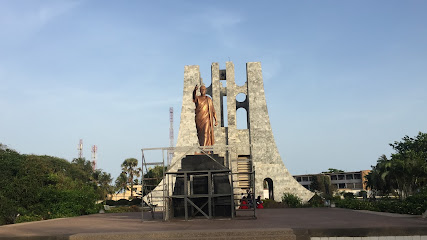
Boti Waterfalls
Experience the breathtaking beauty of Boti Waterfalls, a natural gem in Ghana surrounded by lush greenery and rich cultural significance.
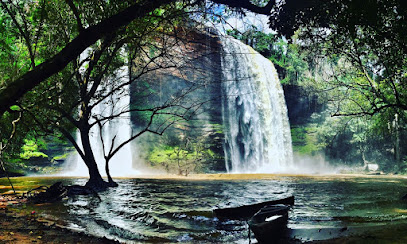
Tafi Atome Monkey Sanctuary And Cultural Village
Experience the magic of Tafi Atome Monkey Sanctuary, where playful monkeys and rich Ghanaian culture collide in a lush, tropical paradise.
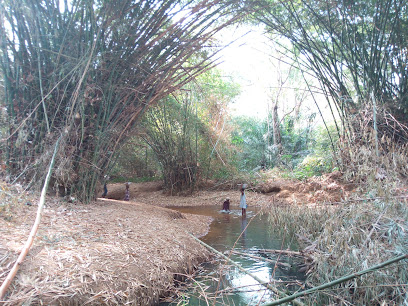
Wli Agumatsa Waterfalls
Discover the breathtaking beauty of Wli Agumatsa Waterfalls, Ghana's highest waterfall, and immerse yourself in nature's serene landscape.
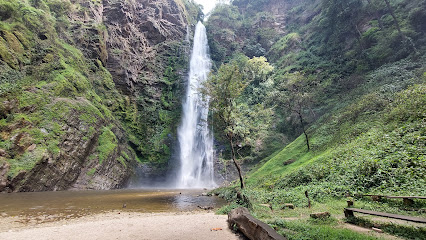
Umbrella Rock
Explore the stunning Umbrella Rock in Asiafo Amanfro, Ghana, a remarkable natural wonder offering breathtaking views and rich cultural experiences.
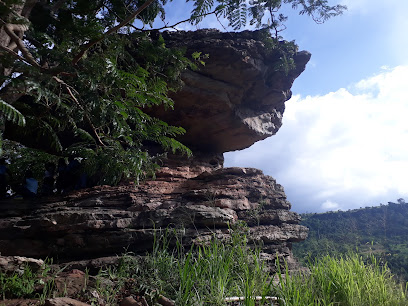
Ote waterfall
Experience the breathtaking beauty of Ote Waterfall in Amedzofe, a serene natural attraction perfect for adventure and relaxation in Ghana.
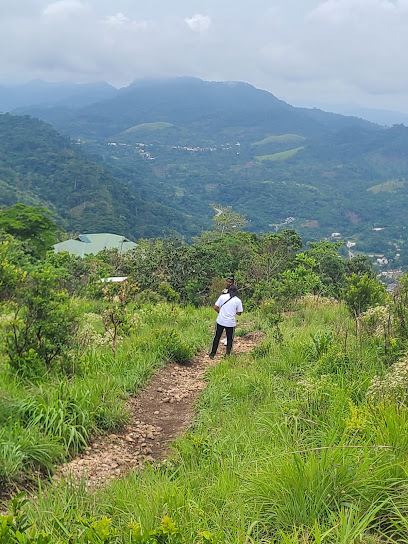
Waterfall Lodge at Wli
Experience the beauty of nature at Waterfall Lodge at Wli, your gateway to Ghana's stunning landscapes and Wli Waterfalls.

ADOMI (ADOME) BRIDGE
Discover the breathtaking views and rich heritage at Adomi Bridge, a remarkable landmark connecting Juapong and Atimpoku in Ghana.
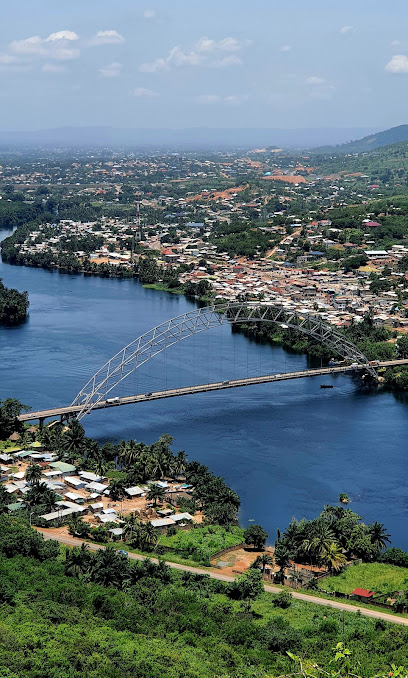
Liati Soba, Volta Ghana
Experience the serene beauty and rich culture of Liati Soba in Ghana's Volta Region, a traveler’s paradise of adventure and tranquility.
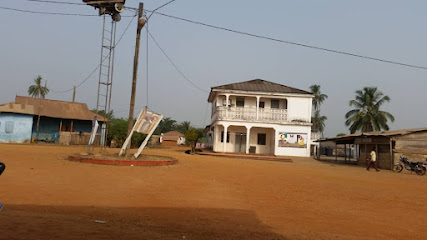
Mt. Gemi
Experience the stunning views and serene beauty of Mt. Gemi, one of Ghana's highest peaks, perfect for hiking and nature lovers.
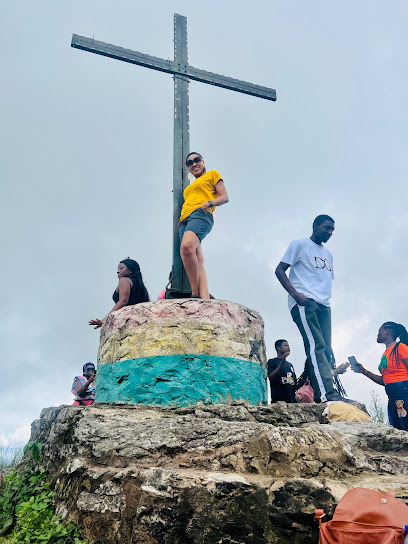
Okwahuhene’s Palace
Explore the historical heart of Kwahu culture at Okwahuhene’s Palace, a captivating museum in Abetefi showcasing royal heritage and traditions.
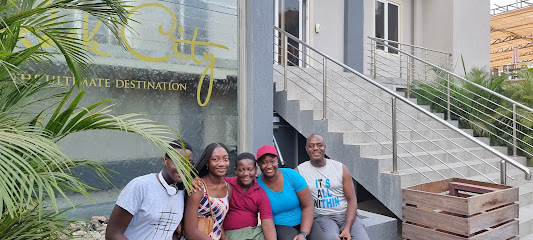
Liati Dafornu, Ghana Volta
Explore the enchanting landscapes and rich culture of Liati Dafornu, a hidden gem in Ghana's Volta region, perfect for nature and adventure lovers.
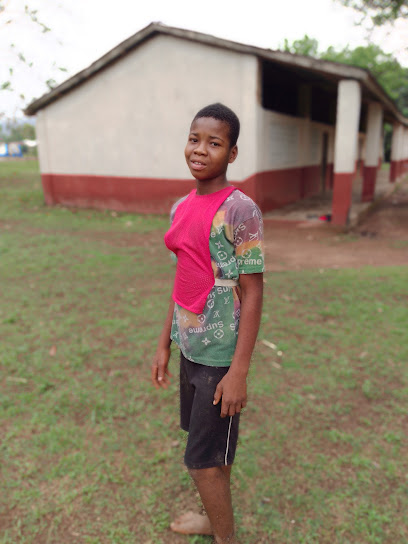
Volta Estuary, Ada Foah
Discover the breathtaking Volta Estuary in Ada Foah, where the mighty river meets the sea, offering nature, adventure, and local culture.
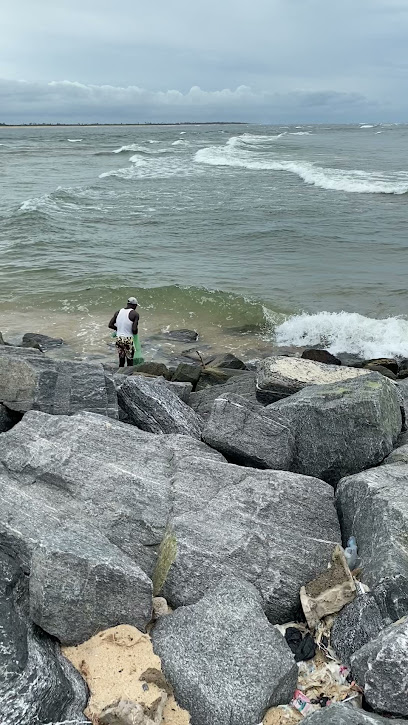
Unmissable attractions to see
Dodi World Akosombo (Dodi Princess,Dodi Island,Boat Cruise)
Experience the beauty of Ghana at Dodi World Akosombo with scenic boat cruises, a beautiful island retreat, and delicious dining.
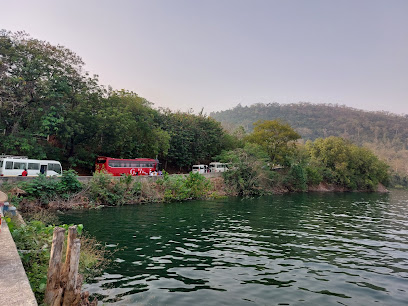
Abetifi Stone Age Park
Explore the fascinating history of humanity at Abetifi Stone Age Park, a unique destination for culture and nature lovers in Ghana.
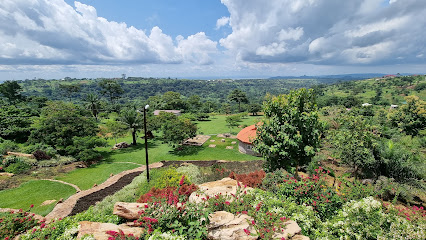
Volta Regional Museum
Discover the rich cultural heritage of the Volta Region at the Volta Regional Museum in Ho, Ghana – a treasure trove of history and artifacts.
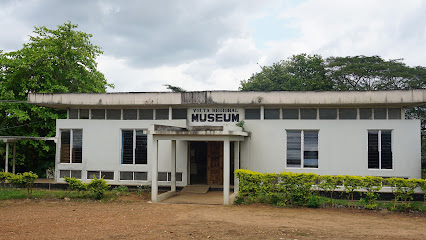
Akaa Waterfalls
Discover the breathtaking beauty of Akaa Waterfalls in Asiafo Amanfro, where nature's splendor meets tranquility for an unforgettable experience.
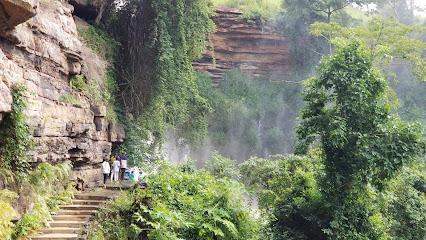
Adome Bridge Gardens
Discover the tranquil beauty of Adome Bridge Gardens, a lush paradise in Ghana perfect for relaxation and nature exploration.
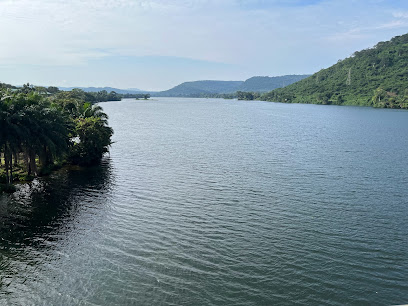
Liati Soba, Volta Ghana
Explore the breathtaking landscapes and rich culture of Liati Soba in Ghana's Volta Region, a hidden gem for adventurers and nature lovers.
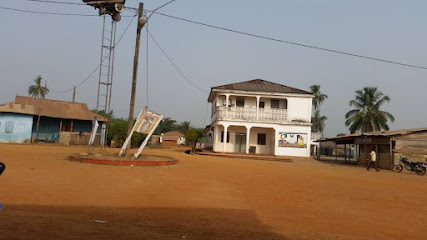
Butuase Waterfall | TortoisePath.com
Discover the enchanting beauty of Butuase Waterfall in Kwahu Tafo, a serene retreat surrounded by nature's splendor and rich cultural experiences.
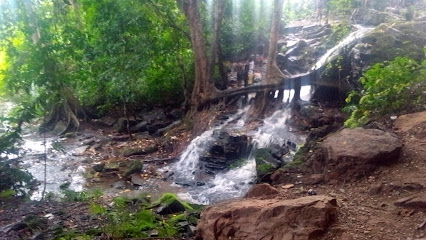
Tini Waterfalls
Immerse yourself in the natural beauty of Tini Waterfalls, a serene escape in Adasawase, Ghana, perfect for adventure seekers and nature lovers.
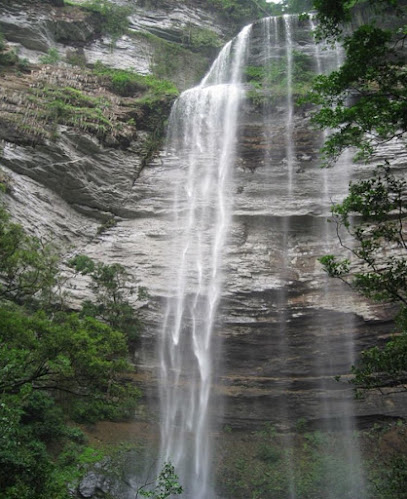
Akwamu Gorge Islet
Experience the serene beauty of Akwamu Gorge Islet, a national forest in Atimpoku, perfect for hiking, birdwatching, and reconnecting with nature.
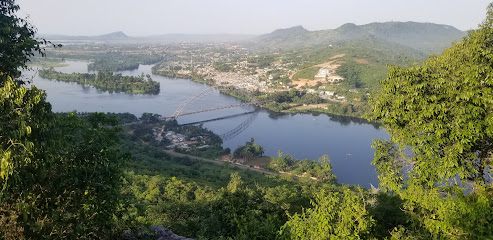
Liati Dafornu, Ghana Volta
Explore the natural wonders and vibrant culture of Liati Dafornu, a hidden gem in Ghana's Volta Region, offering breathtaking landscapes and rich traditions.
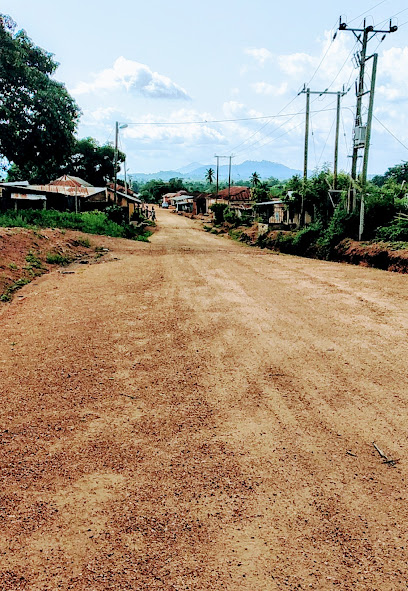
Sesiamang Sisi Stone City
Explore Sesiamang Sisi Stone City, a breathtaking natural wonder in Awawaso, showcasing stunning rock formations and scenic vistas.
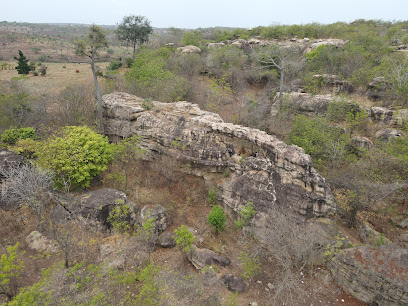
Galenku Mountain
Discover the natural beauty and hiking trails of Galenku Mountain, a stunning tourist attraction in Ho, Ghana, perfect for nature lovers and adventure seekers.

NYAGBO KONDA
Explore the serene beauty of Nyagbo Konda in Ando No1, Ghana, where nature meets culture in a breathtaking landscape.
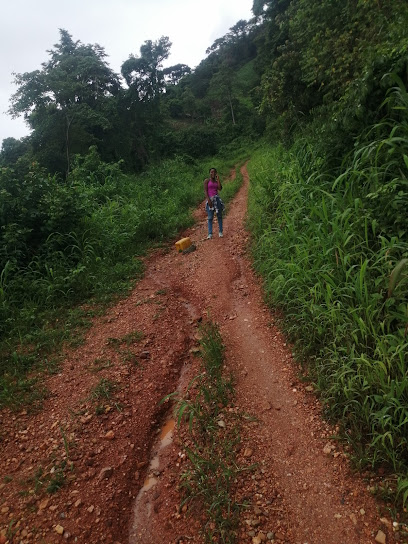
Akonta Gardens
Explore the enchanting Akonta Gardens in Mpraeso, a serene haven for nature lovers and an ideal getaway for relaxation and family fun.
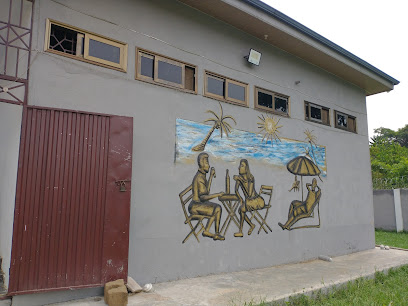
Society Kudzra Bamboo River.
Experience the tranquility of nature at Society Kudzra Bamboo River in Sovie, a perfect escape for relaxation and exploration.
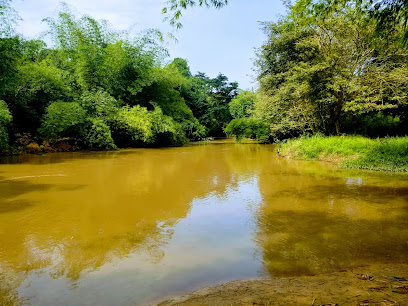
Essential places to dine
Volta Hotel Akosombo
Discover unparalleled luxury and adventure at Volta Hotel Akosombo, your gateway to experiencing Ghana's stunning natural beauty.
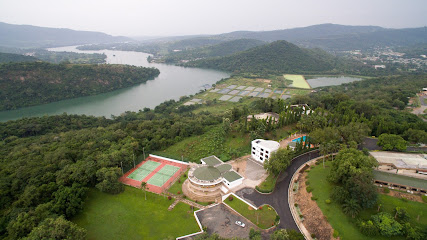
Maritime Club House
Experience culinary excellence at the Maritime Club House in Akosombo – where local flavors meet international cuisine in a stunning setting.
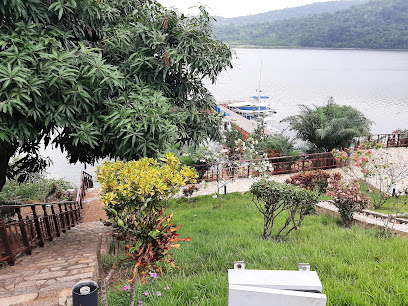
Stejoy Restaurant
Discover Stejoy Restaurant in Akosombo - where delicious Chinese cuisine meets fast food favorites in a welcoming atmosphere.
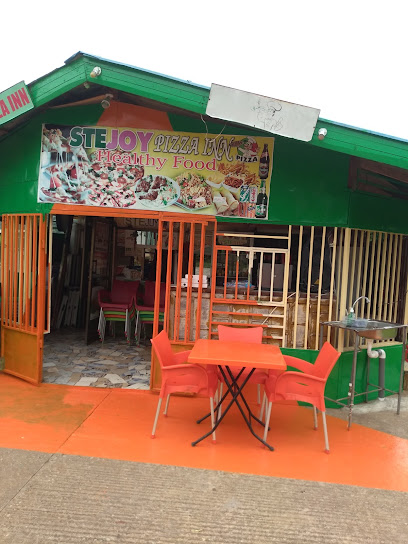
Gizzard Park
Discover Gizzard Park in Akosombo - where delectable cuisine meets serene surroundings for an unforgettable dining experience.
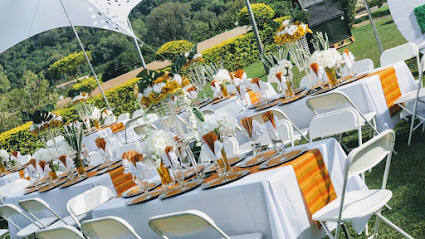
In-n-out chillies
Discover In-n-Out Chillies in Ho: where local flavors meet international cuisine in a vibrant dining atmosphere.
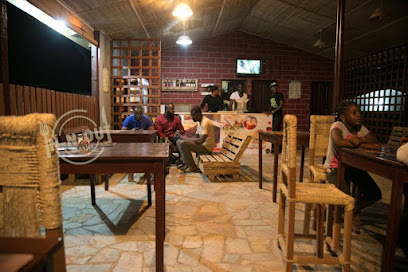
Hollywood Cafe
Experience the flavors of Ghana at Hollywood Cafe in Akosombo - where culinary delight meets scenic beauty.
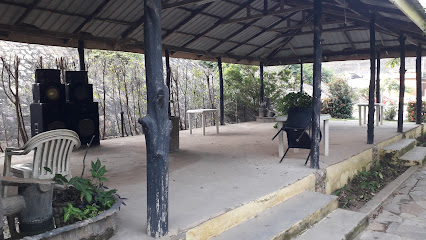
SUMMERS SPOT
Discover the vibrant flavors of Ghana at Summers Spot - where grilled delights meet warm hospitality in Akosombo.
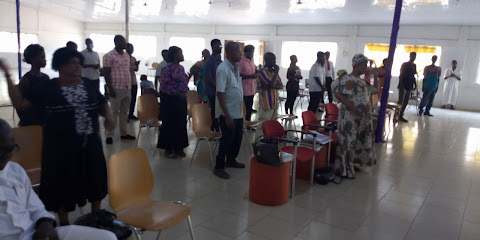
Kenkey House
Experience authentic Ghanaian flavors at Kenkey House in Akosombo—your go-to brunch spot for delightful local cuisine.
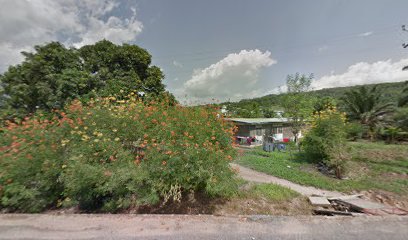
Steve & Joy restaurant
Experience authentic Chinese cuisine at Steve & Joy Restaurant in Akosombo - where flavor meets tradition amidst stunning natural beauty.
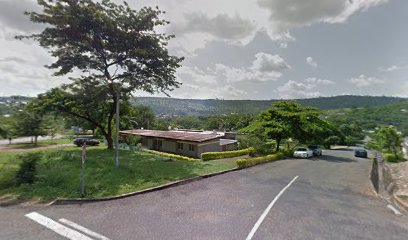
Markets, malls and hidden boutiques
Tafi Abuife Kente Village
Explore the rich heritage of Ghana at Tafi Abuife Kente Village, where vibrant culture and exquisite craftsmanship come together in a stunning setting.
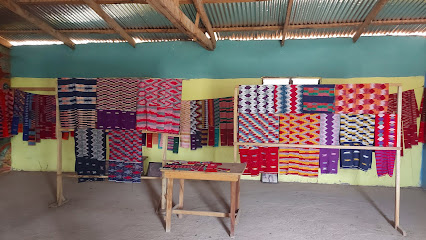
Sasa Clothing
Experience Ho's vibrant fashion scene at Sasa Clothing, where local culture meets contemporary style in a unique shopping adventure.
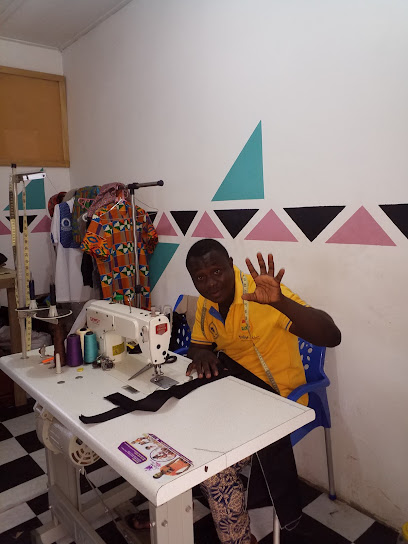
Kambatiak old market
Discover Kambatiak Old Market in Trohwe for a vibrant culinary experience showcasing fresh meats and local flavors.

Awuradekasa store
Explore the vibrant Awuradekasa Store in Trohwe for authentic Ghanaian crafts, local produce, and a warm cultural experience.

Gloramike
Experience local culture and craftsmanship at Gloramike, Trohwe's go-to store for unique souvenirs and essential goods.

Aburi
Discover unique local fashion and cultural heritage at Aburi, Trohwe's premier clothing store showcasing Ghanaian craftsmanship.

Akoo's Villa
Explore Akoo's Villa in Trohwe for authentic local crafts and a taste of Ghanaian culture in a warm and inviting shopping atmosphere.

God Never Fails Fashion
Explore unique styles and vibrant fashion at God Never Fails Fashion, your go-to clothing store in Rotstock, Ghana.

Madina Estate
Explore stunning fashion at Madina Estate in Trohwe, Ghana, where traditional meets contemporary in a vibrant shopping haven.

H
Explore Trohwe's premier Electronics Store for the latest gadgets and unbeatable customer service in a vibrant shopping atmosphere.

Sandra enterprise
Explore authentic Ghanaian flavors and local culture at Sandra Enterprise, Trohwe's beloved grocery store.

PALACE VIEW STORE'S
Discover local treasures and authentic Ghanaian products at Palace View Store on Ghana Flag Lane.

Agona Asamang
Explore Agona Asamang in Trohwe for unique clothing and accessories that showcase the vibrant spirit of Ghanaian fashion.

Tantra Hill
Explore Tantra Hill in Trohwe – a treasure trove of exquisite furniture that reflects the artistry and culture of Ghana.

Emmanuel Kweku
Explore Emmanuel Kweku Store in Trohwe for a vibrant shopping experience featuring authentic Ghanaian products and local craftsmanship.

Essential bars & hidden hideouts
Club House (VRA)
Experience the vibrant atmosphere of Club House in Akosombo, where relaxation meets delightful refreshments amid stunning views.
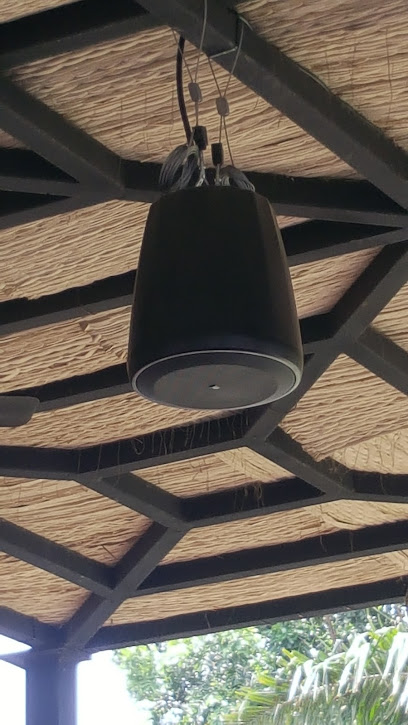
Club Casanova Sport
Experience the vibrant nightlife at Club Casanova Sport, a premier bar in Accra, Ghana, perfect for socializing and enjoying local culture.
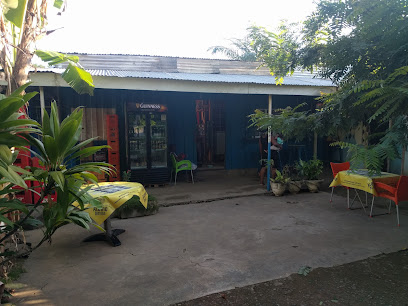
Jamrok Bar and Event Centre
Experience the vibrant atmosphere of Jamrok Bar and Event Centre, a perfect blend of relaxation and entertainment in N2, Ghana.
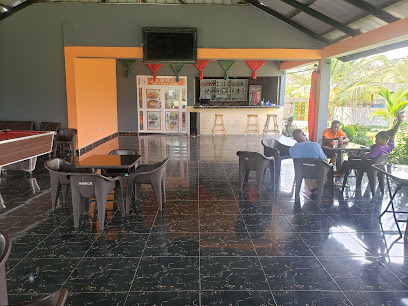
Fun City
Discover Fun City in Akosombo - a vibrant bar perfect for relaxation, socializing, and experiencing the local culture.
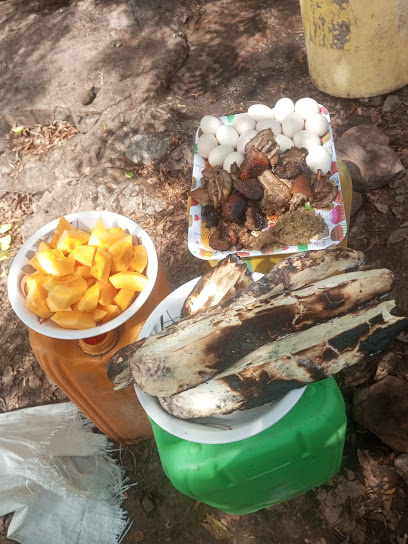
Lakeside Gardens
Experience the perfect blend of culinary delights and stunning lakeside views at Lakeside Gardens in Kpando Torkor.
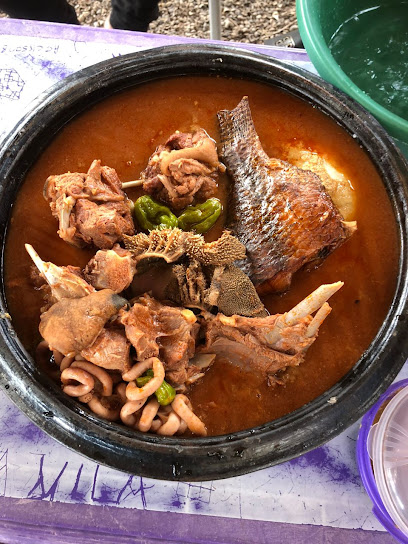
Alabama Pub & Grill
Discover the vibrant atmosphere of Alabama Pub & Grill in Atimpoku, where local flavors and lively interactions await every visitor.
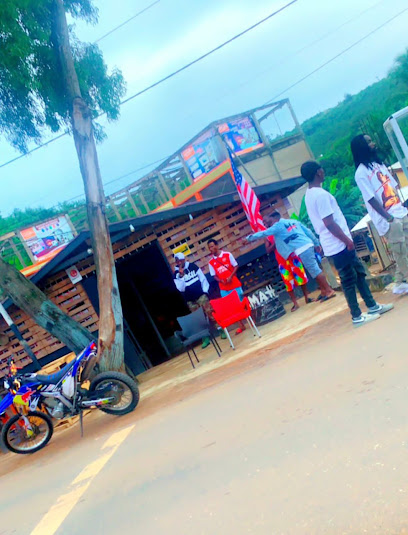
LEGACY LOUNGE &PUB
Discover the vibrant atmosphere of Legacy Lounge & Pub in Atimpoku, where good drinks, live music, and local culture come together.
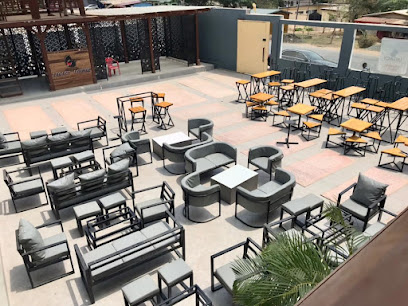
Leggers Bar
Experience the vibrant nightlife at Leggers Bar in Akosombo, offering refreshing drinks, live music, and a welcoming atmosphere.
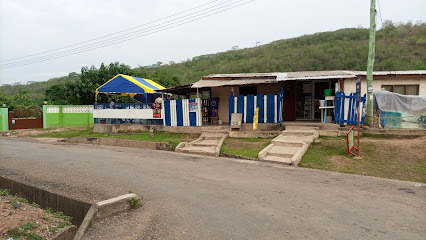
Grill and Hot - Akosombo
Discover the vibrant tastes of Akosombo at Grill and Hot, where every bite resonates with the essence of grilled perfection.
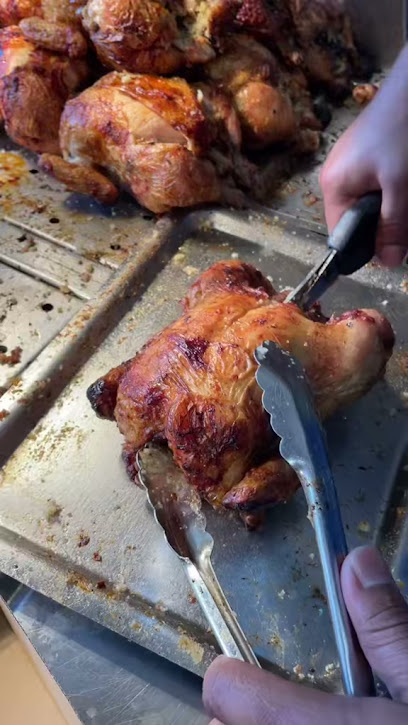
KING RIGHTEOUS PUB
Discover the heart of Ghanaian culture at King Righteous Pub in Vakpo, where lively atmosphere meets authentic local experiences.
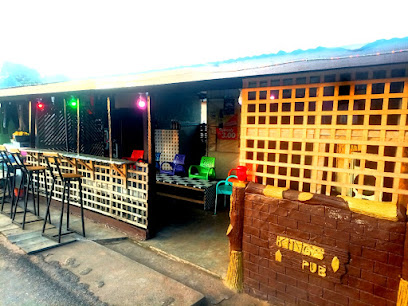
SUMMERS SPOT
Experience the essence of Ghanaian cuisine at SUMMERS SPOT, Akosombo's premier grill, where every meal is a celebration of flavor and culture.
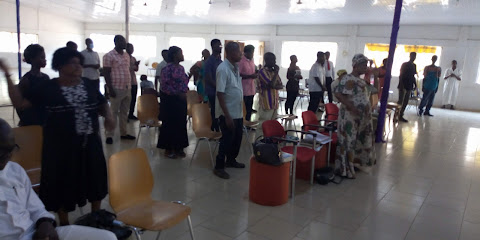
RAFFIN ROYAL LODGE
Discover the charm of Raffin Royal Lodge, an idyllic riverside bar in Akwamufie offering a blend of local drinks and warm hospitality.
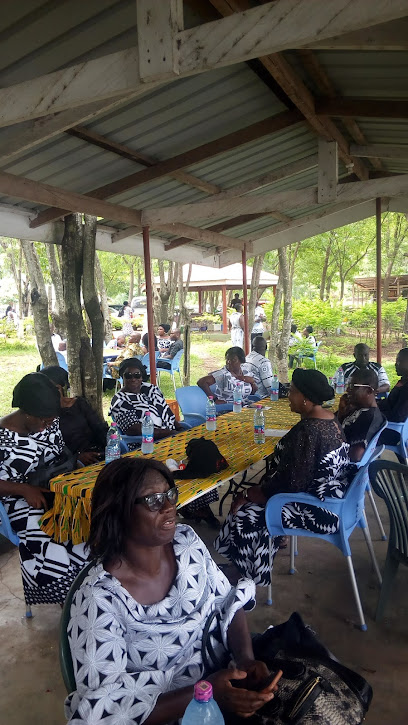
Happy Bar
Discover the vibrant nightlife of Juapong at Happy Bar, where locals and tourists unite over delightful drinks and lively entertainment.
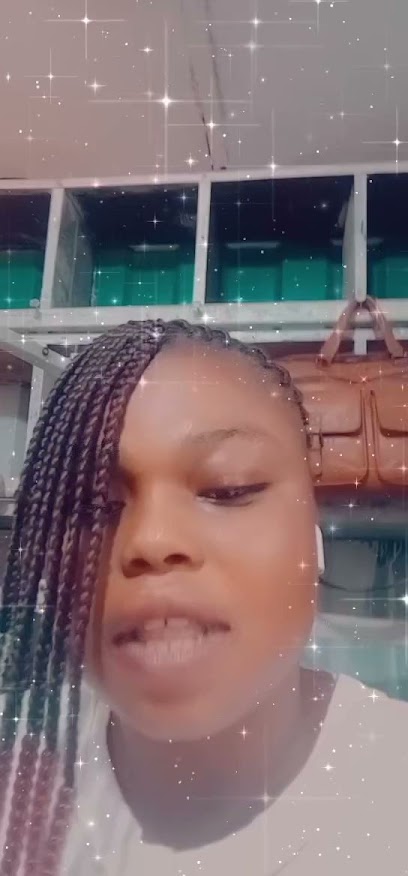
Adom Fast Food
Discover the heart of Ghanaian cuisine at Adom Fast Food in Yeji – a lively bar offering authentic flavors and a welcoming atmosphere.
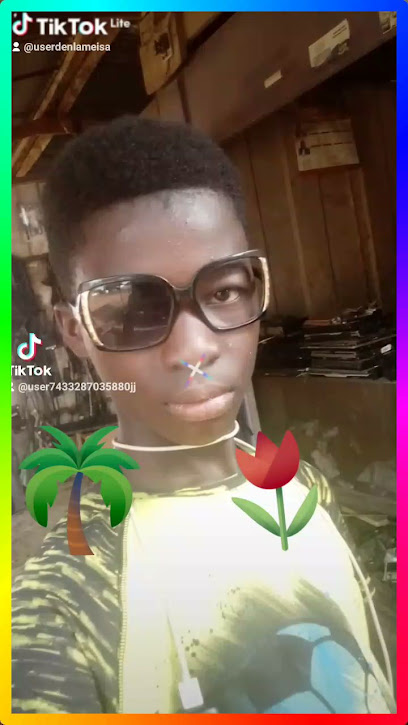
Local Phrases about Lake Volta
-
- HelloAkwaaba
[ah-KWAH-bah] - GoodbyeKaafe
[KAH-fay] - YesAane
[AH-neh] - NoDaabi
[DAH-bee] - Please/You're welcomeMe daa si/Me daase
[may-dah-see/may-dah-ah-say] - Thank youMedaase
[may-dah-ah-say] - Excuse me/SorryEyi me paa/Me yare
[AY-yee may pah/may YAH-ray] - How are you?Ete sen?
[AY-tay sen] - Fine. And you?Eye. Na wo ho?
[AY-yay. Nah woh hoh] - Do you speak English?Wo gye Twi?
[woh jay t-wee] - I don't understandMenntumi nnipa
[mehn-too-mee nee-pah]
- HelloAkwaaba
-
- I'd like to see the menu, pleaseMepa menu nkyerɛw, mesrɛ wo
[may-pah men-oo n-chay-ray, may-say-rah woh] - I don't eat meatMenntumi nka ntama
[mehn-too-mee en-kah en-tah-mah] - Cheers!Afehyia pa
[ah-fay-yee-ah pah] - I would like to pay, pleaseMepa wo, mesrɛ wo
[may-pah woh, may-say-rah woh]
- I'd like to see the menu, pleaseMepa menu nkyerɛw, mesrɛ wo
-
- Help!Boa me!
[boh-ah may] - Go away!Fi wɔ!
[fee woh] - Call the Police!Kyerɛ nkrantɛ ne nea ɛbɛma no
[chay-ray n-krahn-tay nay nay-ah ay-beh-mah noh] - Call a doctor!Kyerɛ ɔkɔtɔ
[chay-ray oh-koh-toh] - I'm lostMɛbɔ me dɔ
[may-boh may doh] - I'm illMɛfrɛ me
[may-fray may]
- Help!Boa me!
-
- I'd like to buy...Mepa kɔ...
[may-pah coh] - I'm just lookingMɛtumi ahyɛ
[meh-too-mee ah-yay] - How much is it?Ɛyɛ bɛn?
[ay-yay bane] - That's too expensiveYɛnkɔ sɛkɔ
[yayn-koh say-koh] - Can you lower the price?Wo pɛ sɛ wopɛ sika?
[woh pay say woh-pay see-kah]
- I'd like to buy...Mepa kɔ...
-
- What time is it?Ɛyɛ bɛn mu?
[ay-yay bane moo] - It's one o'clockBere a wɔn
[beh-ray ah wohn] - Half past (10)Awia a wɔn (10)
[ah-wee-ah ah wohn (10)] - MorningAnɔpa
[ah-noh-pah] - AfternoonAwia
[ah-wee-ah] - EveningAnwummere
[ahn-woom-may-ray] - YesterdayNkrabea
[n-krah-beh-ah] - TodayNnɛ
[nyeh] - TomorrowƐfie
[ay-fyeh] - 1Kɔtɔ
[koh-toh] - 2Nan
[nahn] - 3Mmienu
[mee-eh-noo] - 4Nnanson
[nyah-nsohn] - 5Nnume
[nyoo-may] - 6Nsia
[n-see-ah] - 7Nson
[n-sohn] - 8Nkron
[n-kron] - 9Nkronnu
[n-kron-noo] - 10Du
[doo]
- What time is it?Ɛyɛ bɛn mu?
-
- Where's a/the...?Ɛyɛ bɛn...
[ay-yay bane] - What's the address?Ɛyɛ adrese no bɛn?
[ay-yay ah-dres-ay no bane] - Can you show me (on the map)?Wo pɛ sɛ wobɛkɔ map no mu?
[woh pay say woh-beh-koh map noh moo] - When's the next (bus)?Ɛyɛ bɛn a wɔn no mu?
[ay-yay bane ah wohn noh moo] - A ticket (to ....)Tikɛt (kɔ ....)
[tee-ket (coh)]
- Where's a/the...?Ɛyɛ bɛn...
History of Lake Volta
-
Lake Volta, one of the world's largest artificial reservoirs, was created in 1965 by the construction of the Akosombo Dam on the Volta River. This massive engineering project was undertaken to provide hydroelectric power and boost industrial development in Ghana. The lake spans an area of about 8,502 square kilometers and stretches for around 400 kilometers from the Akosombo Dam in the south to the northern reaches of the country.
-
The Akosombo Dam, completed in 1965, was a monumental achievement for Ghana and a significant event in African industrial history. It was financed through international loans and partnerships, including support from the World Bank. The dam not only created Lake Volta but also generated substantial hydroelectric power, which has been pivotal in driving Ghana's economic growth and industrialization efforts.
-
The creation of Lake Volta resulted in the displacement of approximately 80,000 people from over 700 villages. These communities, primarily engaged in farming and fishing, were relocated to new areas by the Ghanaian government. The relocation process was fraught with challenges, including loss of ancestral lands and cultural disconnection, which have had lasting impacts on the displaced populations.
-
Lake Volta has significantly influenced the local economy, particularly through its fisheries. The lake supports a thriving fishing industry, providing livelihoods for thousands of people. Fish from Lake Volta is a crucial source of protein for many Ghanaians and is also exported to neighboring countries. The lake's economic contributions extend to transportation and agriculture, as it facilitates inland shipping and irrigation.
-
Lake Volta has found its way into various aspects of popular culture and folklore in Ghana. It is often featured in local music, art, and literature, symbolizing both the promise of modernization and the nostalgia for lost traditional ways of life. The lake's vast expanse and scenic beauty also make it a popular destination for tourists seeking to experience Ghana's natural landscapes.
-
The creation of Lake Volta brought about significant environmental changes, including the flooding of vast tracts of land and the alteration of local ecosystems. There have been ongoing concerns about issues such as water quality, invasive species, and the sustainability of fish stocks. Efforts are being made to address these challenges through environmental monitoring and conservation initiatives.
-
Lake Volta has become a hub for tourism and recreational activities. Visitors can enjoy boat cruises, fishing trips, and visits to lakeside resorts. The lake's scenic beauty, combined with cultural attractions such as traditional villages and local markets, makes it a compelling destination for travelers. Efforts are underway to develop sustainable tourism practices that benefit local communities and preserve the lake's natural environment.
Lake Volta Essentials
-
Lake Volta is located in Ghana, and the nearest major city is Accra, which has an international airport, Kotoka International Airport (ACC). From Accra, you can reach the lake by car, bus, or domestic flight to nearby towns such as Ho, Koforidua, or Akosombo. The drive from Accra to Akosombo typically takes about 2-3 hours. Alternatively, you can take a bus from Accra's main bus terminals such as Tudu Station or VIP Bus Terminal.
-
Once you are in the Lake Volta area, local transportation options include taxis, tro-tros (shared minibuses), and motorbikes. Taxis are a convenient option for short distances, while tro-tros are more economical for longer trips. It is also possible to rent a car, but be prepared for varying road conditions. Boat tours and ferries are available for traveling on the lake itself, offering a unique way to explore the area.
-
The official currency in Ghana is the Ghanaian Cedi (GHS). Credit cards are accepted in major hotels and some restaurants, but it is advisable to carry cash, especially in smaller towns and rural areas around Lake Volta. ATMs are available in larger towns, but it is wise to withdraw sufficient cash in Accra before traveling to more remote areas. Foreign exchange services are available at banks and authorized forex bureaus.
-
Lake Volta is generally safe for tourists, but it is important to take standard precautions. Avoid walking alone at night in unfamiliar areas and keep an eye on your belongings in crowded places. Be cautious when using public transportation and avoid isolated areas. While there are no specific high-crime areas targeting tourists, it is always best to stay vigilant and aware of your surroundings.
-
In case of emergency, dial 999 for immediate assistance. Medical facilities and police stations are available in larger towns around Lake Volta. It is recommended to have travel insurance that covers medical emergencies. For minor health issues, pharmacies are available in towns such as Ho and Akosombo where you can purchase over-the-counter medications.
-
Fashion: Do dress modestly, especially when visiting villages and religious sites. Avoid wearing revealing clothing. Religion: Do respect local customs and traditions. Always ask for permission before taking photos in religious sites. Public Transport: Do be respectful and give up your seat to elderly passengers. Don’t eat or drink on public transport. Greetings: Do greet people with a handshake. A friendly 'Akwaaba' (welcome) is also appreciated. Eating & Drinking: Do try local delicacies and accept food offerings graciously. Don’t refuse hospitality, as it is considered impolite.
-
To experience Lake Volta like a local, visit the local markets where you can buy fresh produce and traditional Ghanaian goods. Engage with locals, as they are often friendly and willing to share stories about the area's history and culture. Don’t miss a boat trip on the lake to see the beautiful scenery and floating villages. For a unique experience, visit the Akosombo Dam and learn about its significance to Ghana's economy and energy supply.
Trending Landmarks in Lake Volta
-
Kwame Nkrumah Memorial Park & Mausoleum
-
Boti Waterfalls
-
Tafi Atome Monkey Sanctuary And Cultural Village
-
Wli Agumatsa Waterfalls
-
Umbrella Rock
-
Ote waterfall
-
Waterfall Lodge at Wli
-
ADOMI (ADOME) BRIDGE
-
Liati Soba, Volta Ghana
-
Mt. Gemi
-
Okwahuhene’s Palace
-
Liati Dafornu, Ghana Volta
-
Volta Estuary, Ada Foah
Nearby Cities to Lake Volta
-
Things To Do in Ho
-
Things To Do in Kpalimé
-
Things To Do in Accra
-
Things To Do in Notse
-
Things To Do in Lomé
-
Things To Do in Atakpamé
-
Things To Do in Kumasi
-
Things To Do in Aneho
-
Things To Do in Lokossa
-
Things To Do in Cape Coast
-
Things To Do in Ouidah
-
Things To Do in Sekondi-Takoradi
-
Things To Do in Takoradi
-
Things To Do in Sunyani
-
Things To Do in Cotonou











